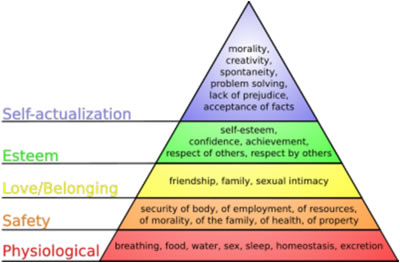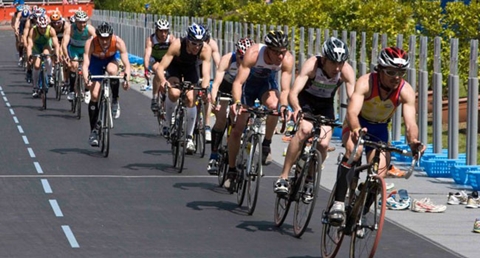 |
Self Actualization Skills to improve Health, Relationships, Lifestyle and Athletic Performanceby Ralph Teller |
|
Self-Actualization is a key component in enhancing Vigor, improving Brain Power, building stronger relationships, becoming a better athlete and achieving Longevity. Self Actualization is a continual process of growth and a source of pride and happiness. A richer lifestyle and longer healthier life can be an achievement of Self-Actualization.
What is Self-Actualization? Self-actualization is a level of development where personal growth becomes an psychological needs. Self-Actualization is an enduring driving force with us. It’s been said that all examples of people who achieve greatness or do great things share an inner inspiration to express their soul potential.
Self-Actualization has been identified as the highest need in Abraham Maslow's Hierarchy of Needs and includes the Self-Actualization of benefitting others:
- PHYSIOLOGICAL - Basic living needs, such as food, water, oxygen and sex
- SAFETY - Once physiological needs are satisfied, you need to have a home and other forms of security
- BELONGING - So far you have taken care of yourself. Once you do this, you look to make friends, find someone to love and in general feel part of a community
- SELF-ESTEEM - You need self-confidence, to be appreciated for what you are and be treated with dignity
- SELF-ACTUALIZATION. This is the highest level. Once your basic needs are supplied, you seek ways to reach your highest potential.

Courtesy of Wikimedia Commons
Self-Actualization is the essence of human nature. As Dr. Maslow found, “practically every human being, and certainly in almost every newborn baby, that there is an active will toward health, an impulse towards growth, or towards actualization".
How is Self-Actualization realized? After the basic human needs, such as food, shelter, clothing, health, and employment needs are met, our needs of friendship, family, and sexual intimacy. Humans also need to feel a sense of belonging and acceptance from social groups, such as clubs, work, religious groups, professional organizations, sports teams, family, intimate partners, mentors, close colleagues, and confidants.
After these physiological, safety, belonging, social and esteem needs are meet, we by nature seek to grow through Self-Actualization.
What are the Barriers to Self-Actualization?
- Ignorance. Self-mastery is essentially impossible if one is not willing to devote time to understanding the nature of the mind.
- Negative Habit Formation. Being stuck in a set behaviors and patterns of thought that do not support our pursuit of worldly success or self-mastery.
- Destructive Personality Traits. Low self esteem trains such as self-destruction, self-indulgence and self-pity.
- Ego Defense Mechanisms. Our Ego is subject to a number of self-deceptions preventing self-mastery that manifest as a stressful emotional state such as fear, guilt, embarrassment, anger, or frustration.
- Negative Self-Talk. Thoughts have a great impact on the emotions, feelings or states of mind that is operate at any given moment of time.
- Arrested Development. Ego growth has stopped prematurely.
- Failure to Master Negative Emotions and States of Mind.
- Poor Attention Management and Self-Awareness. One must properly focus attention to process any type of information.
What are some Characterizations of Self-Actualizing People?
Self starters who are responsible for themselves and own their behavior.
The good news is that despite our genetic makeup, environment and experiences, we can all improve upon our ability to Self-Actualize and reach our potential!
<-- back to top




